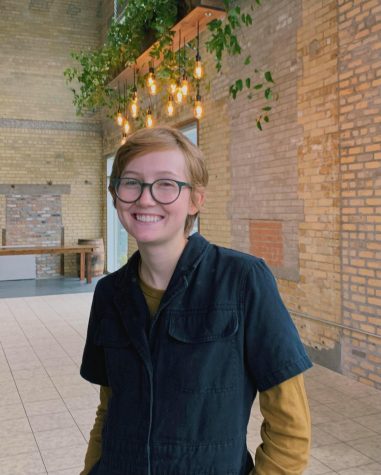College announces mode of delivery for fall 2020
June 30, 2020
On Tuesday, June 30, President Suzanne Rivera announced in a campus-wide email that Macalester will move forward with its plan for in-person instruction during the fall semester. An online option will also be offered for students who decide to attend remotely.
“We understand that members of our community will approach the fall with a variety of preferences and needs,” Dr. Rivera wrote. “For some, being on campus is the best and safest place for them to learn; for others, learning remotely or taking time off will make the most sense; for still others, getting to campus will pose a challenge. Our aim is to provide maximum flexibility to address students’ needs.”
The coming semester will look vastly different than any semester at Macalester before. In the email, Rivera detailed what changes the college is making in response to the challenges posed by the coronavirus.
Classes will be conducted both in-person and remotely, with students being able to opt into either option. To facilitate this, Macalester is taking significant steps to support the different modes of delivery.
“With guidance from the faculty, the college is making a significant investment in technology and training to support this flexibility,” Rivera wrote. “The work that our faculty and staff are doing to prepare a new, highly flexible learning model, is not only necessary right now but promises benefits into the future to improve the academic experience for all students.”
The in-person classroom experience will also be adjusted in an effort to minimize the risk of COVID-19 exposure — desks will be reconfigured to accommodate six-foot physical distancing, and time will be built into the class schedule to minimize traffic and allow for sanitizing the room.
When students do begin to move into campus housing in the fall ahead of the Sept. 2 start date, they’ll be assigned staggered move-in times. For the most part, first and second-year students will live in single rooms, and students in specialty housing will remain in those housing assignments.
The college has made arrangements to house a number of students in various St. Paul hotels in an effort to decrease the density of students living on-campus. This group includes upperclassmen who planned to live on campus and students who had planned to study away during the fall semester and haven’t yet secured housing. These students will be offered on-campus meal plans and Metro Transit bus passes. There will also be a shuttle service available for students living in hotels.
Student-athletes who had planned to live on-campus will also be housed as teams in hotels, and will be transported to and from campus together. The college is awaiting guidance from the Minnesota Department of Health (MDH) and Macalester’s athletic conference for further instruction on how the fall athletics season will unfold.
Among the other changes, instead of traditional, buffet-style dining, students can expect to-go meals and increased dining hours.
Some things aren’t changing. Students will still be able to complete work-study and academic internships. The college won’t host events itself, but students aren’t discouraged from attending off-campus activities.
In addition to reevaluating the academic, social and residential environment, the college is implementing a series of health protocols to further protect against COVID contraction.
“Keeping everyone in our community as healthy as possible will require all of us working together, being proactive about monitoring our own health, and engaging in behaviors that help keep each other safe,” Rivera wrote.
All community members will receive training on how to keep themselves and others safe, supported by a public health campaign promoting proper hygiene and social distancing protocols.
Students are expected to wear masks in campus buildings and receive a flu shot if attending in-person classes. In addition to offering a flu vaccine on campus, the college will also provide COVID testing to any student experiencing symptoms. Testing will be bolstered by contact tracing, led by the MDH.
Incoming first-year, transfer and returning students will soon be asked whether they intend to attend classes remotely, or instead opt into online-only instruction. Information on first-year courses and re-registration will follow thereafter.
Professors will be expected to support both modes of delivery, requiring them to rethink the curriculum for their fall classes.
“Even if there are students on campus, I will need to do some teaching online no matter what,” environmental studies professor Louisa Bradtmiller wrote in an email to The Mac Weekly. “I am still thinking about what this looks like… I think I can safely say it will look pretty different than what I did in the spring.”
Bradtmiller is taking advantage of the unexpected opportunity to reassess the structure and methods of teaching her courses.
“Under normal circumstances, I would probably never have chosen to teach online,” Bradtmiller wrote. “Being forced to switch gears in this way has forced me to rethink how I teach, what I teach, and pretty much every single thing about my classes. Underneath all the layers of stress, in some ways I think that’s a good thing.”














